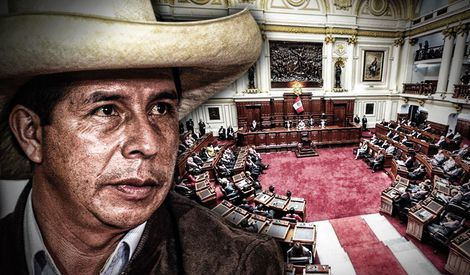
LaRepublica.pe
By Roberto Morejón
The industrialized North and the hegemonic press are trying to make the international community believe that the only one responsible for the serious political crisis in Peru is the now former president Pedro Castillo, and to exonerate the divided Congress.
The rural teacher who became president thanks to a vote at the polls was harassed from the very moment of his triumph.
So did the oligarchy and the political elites, reluctant to accept challenges coming from the deepest part of Peru.
From those lands, where inequality, poverty and labor informality are more visible, they demand a change in the traditional exercise of politics in Peru.
But the right wing and the outdated supporters of former dictator Alberto Fujimori are trying to stifle popular demands, which is why the figure of Castillo became an obstacle.
Settled in a divided congress and with declining prestige in the opinion of Peruvians, the right wing stepped on Castillo's heels, prevented him from governing and fulfilling electoral promises, and the dignitary was also questioned by his followers.
As expressed by the Colombian president, Gustavo Petro, Castillo was cornered for being a teacher from the highlands and a popularly elected president.
Subjected to judicial siege, accused of corruption, exposed to two vacancy attempts, weapon of choice of fanatic legislators, the until recently president saw his margin of maneuver reduced, a fact reflected in the instability in his cabinet and contradictory decisions.
Desperate, the union leader, taken to Pizarro's palace, threw himself into the void in what many call political suicide by wanting to dissolve the Congress, without any support.
With the refusal of the armed forces and the police to support him, the now ex-ruler was left alone and was arrested.
But the script that Congress is the victim works only in the pages of the corporate press and in the messages of the U.S. State Department.
The Peruvian Chamber played all its cards on the separation of Castillo, who was forced to carry out 60 cabinet changes, although it does not intend to hold early elections due to the fear of its members of losing influence and seats.
Castillo's fate seemed to be written for a long time because that is what the oligarchy and the legislative, judicial and media powers wanted.
But these forces will not succeed in deceiving the majority of Peruvians. Many review what Castillo did or could not do, but they also accusingly point out his contenders, in democratic clothing.

